What Does ‘Speak Now Or Forever Hold Your Peace’ Mean? Why Is It Announced?
There is more to this popular phrase than a movie scene from a cliched Hollywood rom-com!
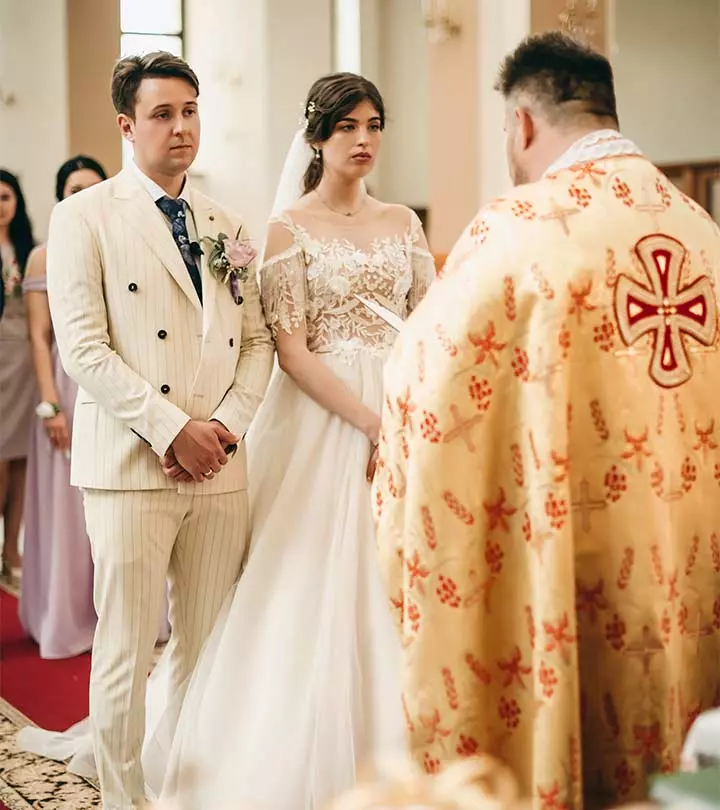
Image: Shutterstock
When and where was the last time you heard this expression? In a Taylor Swift song, as she crooned, ‘Speak Now’ back in 2010? And more recently, on the internet, from those hundreds of funny ‘speak now or forever hold your peace’ memes.
A blogger recalls his personal experience of encountering a church wedding with the priest declaring, “Speak now or forever hold your peace.” He attended the wedding as the groomsman and decided to play a prank based on some past fun by the groom (his friend). As soon as the priest quoted the line, a comic actor shouted, “Stop the wedding, stop the wedding,” and later ran away. This caused discomfort to all but the bride and groom took it in good humour. He realized his mistake and even sent an apology letter to the concerned people (i).
We can bet our last dollar that, for most of you, the phrase is associated with weddings or movies or weddings in Hollywood movies. The phrase ‘speak now…’ is announced from the altar at the very beginning of most weddings as part of the ceremony. Over the years, it has transformed into one big Hollywood rom-com trope. It is quite likely that you can recount a few movie scenes where someone objects to a wedding and possibly walks away with their one true love at the last minute. Let us learn more about the phrase, its origins, and alternative practices.
 Trivia
TriviaIn This Article
What Does The Phrase ‘Speak Now Or Forever Hold Your Peace’ Mean

The words are uttered by the priest or wedding officiant during the ceremony, right before the bride and the groom are asked for their consent to the marriage. Contrary to what rom-coms would have us believe, it is never a dramatic moment. Typically, the words uttered would be:
“_____ and _____ have invited us to share in this celebration as they affirm their love before us, pledge their faith to one another, and enter into the joys and privileges of marriage. If there is anyone present, who can show just cause why these two persons may not be joined in matrimony, speak now or forever hold your peace.”
This phrase holds ceremonial significance as it allows anyone with valid reasons to put a hold on the marriage before it is formally sealed. This rule was created to ensure honesty and transparency before two people formally accept each other as their lifelong partners. From the legal point of view, this declaration strives to safeguard the solemnity of a marriage commitment and ensure that the union complies with the legal standards, thereby preventing any potential legal issues in the future. However, this isn’t an invitation to an anguished lover to make a dramatic interjection with the classic ‘I object’ and then lay a higher claim on the bride or groom’s love. Don’t think of trying this one out at any wedding. You will most likely be shown the door. When a priest utters these words, he means that if there is anyone who knows of a legitimate reason for why the marriage in question should not take place, then this is the last chance to declare it. The words ‘forever hold your peace’ or ‘piece’ implies that you must withhold your objections forever if you choose not to speak at that moment.
That begs the question, ‘what does a legitimate objection mean?’ The objections are supposed to be of the legal kind. They might broadly imply, but are not limited to:
- The couple are related to each other,
- One or both are underage,
- One or both are insane, or
- One or both are already married or in some relationship that nullifies the present one.
 Quick Tip
Quick TipSo, how did this tradition come into being and why? Head to the next section to find out.
Key Takeaways
- ‘Speak now or…’ is a phrase uttered by marriage officiants, inviting people to put forth objections, if any, to the wedding.
- It effectively means the last chance for people to declare any objections; else, they must remain silent forever.
- The objections should be of the legal kind, like being underage, insane, or already married, etc.
- The custom dates back to the Middle Ages, and the phrase was adopted from the Book of Common Prayer published in 1549.
- It is up to you to follow this tradition or to take a modern twist for a more fun and dynamic ceremony.
What Are The Origins Of ‘Speak Now, Or Forever Hold Your Peace’
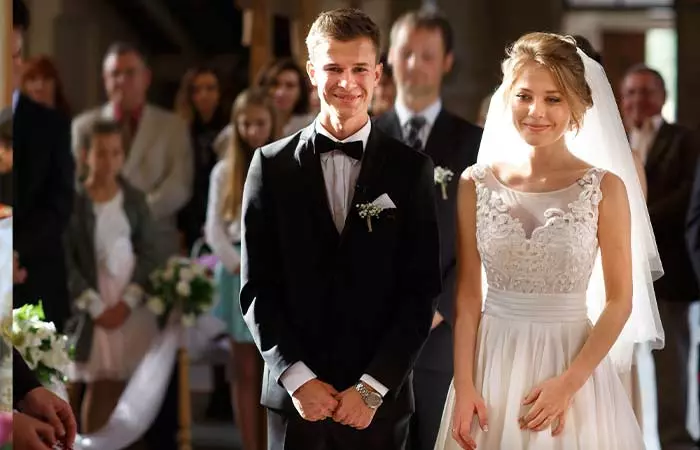
The custom of announcing ‘speak now, or forever hold your peace’ originated in the Middle Ages. It traces its origin to what is known as the ‘banns of marriage.’ While the phrase is taken from the Book of Common Prayer published in 1549, the tradition of announcement and publishing of ‘the banns’ dates back to the early 13th century. Later, much like many other statements from the Book of Common Prayer, this phrase slowly worked its way into countries colonized or influenced by the British Empire. In contemporary times, couples find this phrase outdated and worry it may invite unwanted disruptions. So, many modify the ritual to focus on the positive side and get blessings and support from the guests.
Let’s begin with understanding the purpose and need behind the banns, especially the phrase ‘speak now or forever hold your peace.’.
Why Is The Phrase Announced At Weddings?
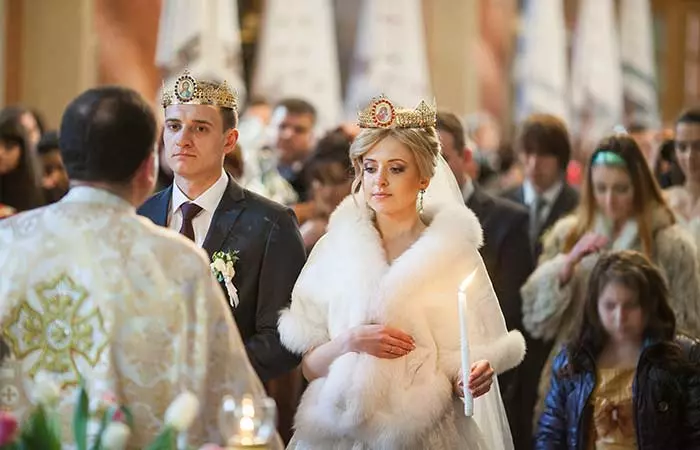
In medieval times, the world was woefully low on connectivity and irksomely high on religious sectarianism, sexist social practices, and sundry traditions, rules, and regulations. Many risks plagued the inherent legality of marriage. Assertion of the marriage contract could be undermined by one or both parties being already married, underage, unbaptized, coerced into marriage or with breaking a vow of celibacy. Disagreement over Consanguinity at various levels could automatically nullify marriages. There was also the problem of licit versus legal marriages. For example, in the 12th century, the ‘consent theory’ of marriage came into being. A couple could marry each other by exchanging the words “I take you to be my husband/wife” without witnesses or a priest present to bless the marriage. Such a marriage was called ‘clandestine.’ It was legal (valid) not, licit (allowed). The problem was that men could seduce a willing maiden into a clandestine marriage and then deny any exchange of vows between them. Such men might have been married already or might marry again later.
To combat clandestine marriages, consanguineous marriages, and other forms of unacceptable unions, the 4th Lateran Council of 1215 ordered:
“[W]e absolutely forbid clandestine marriages, and we forbid also that a priest presumes to witness such.…we decree that when marriages are to be contracted, they must be announced publicly in the churches by the priests during a suitable and fixed time, so that if legitimate impediments exist, they may be made known.”
Following this, most churches began to announce upcoming marriages three consecutive Sundays before the marriage took place. These proclamations, typically read aloud by a priest and published in the parish bulletin, were known as “banns” or “banns of marriage.”
However, the tradition has been rendered rather redundant in our well connected, intensely documented age of social media and information glut. But, it still goes on. Read on to find out why and how.
Is It Relevant Today?
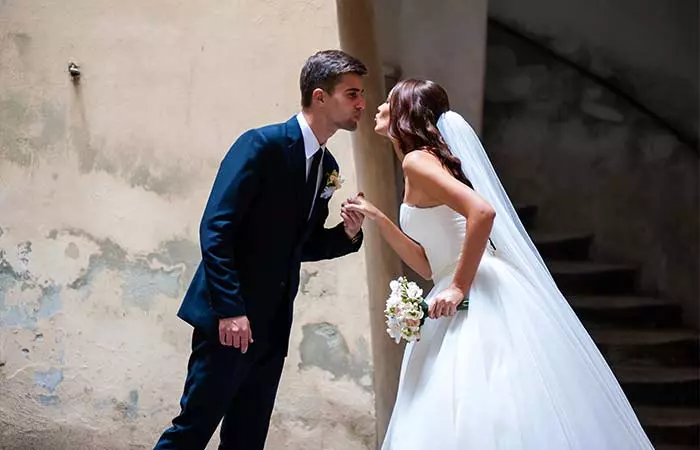
Human beings are creatures of habit and practice many traditions mostly because they seem right, charming, or simply ‘how things have always been.’ The purpose of the declaration ‘speak now or forever hold your peace’ as part of the marriage script remains a last-minute check on the legitimacy of the wedding. There is no harm in being doubly sure, is there?
There is always enough data about a man or a woman readily accessible on government websites. If not, a few trips to government offices or investigative authorities will surely help. There is always some sly spying on Facebook and Instagram. One is bound to unearth most kinds of hidden muck from Google, Facebook, Instagram, and the like.
As for matters such as religious affiliations, statuses, kinship, etc., they are usually discussed and sorted out well ahead of the wedding. Modern couples have healthy communication with each other and they reach an agreement on such matters. Most other pointless objections are most likely to be shushed or shunted out.
Many couples have chosen to either skip the custom or transform the tradition altogether. Not to forget, there have been couples who have used the custom in uniquely crazy ways.
Alternative Practices

Given that this is not an indispensable custom, one can give it any spin one likes or choose to eschew it completely. So, go ahead and choose your personalized spin to this custom. Here are a few ideas:
a. Skip It Entirely
Wedding days are choke-filled with customs, rituals, announcements, vows, obligations, food, drink, dance, and party. A few words off the marriage script is a script that much shorter. Moreover, ‘speak now…’ is almost compulsorily followed by a tense moment of uncomfortable silence. Who needs that?
b. Fake An Objection
Who says marriages need to be sweet, cute, or serious? If you are a sucker for some good drama, then plant someone in the audience and make them do the dramatic “I object.” Watch the crowd gasp for a few moments. How about sitting with your partner and planning an elaborate, well-scripted, funny story of objection? It will afford you and your guests a couple of good laughs, and you can go grinning widely into the “I do” section of your marriage script.
c. Change The Script For A Positive Spin
Many couples choose to flip the ‘objection’ for ‘support.’ It is done by declaring to families and friends that the couple has chosen to enter sacred matrimony and wishes to see their near and dear ones declare their ‘consent’ and eternal support to the newlyweds. The guests are often encouraged to respond with “We do,” mirroring the couples’ vows of “I do.” It is a refreshingly positive take on the tradition and brings about a sense of participation, fellowship, and community.
Infographic: The 411 On ‘Speak Now Or Forever Hold Your Peace’
The phrase ‘Speak now or forever hold your peace’ may not be familiar to many, but you must have definitely watched a rom-com where the priest says this and then the ex-lover or hero stands up to stop the love of his life from getting married. While this pretty much sums up the phrase, it’s not as dramatic as in the movies. Find out its meaning, origin, and significance right here. Check out the infographic below!

Illustration: StyleCraze Design Team
The age-old ‘speak now or forever hold your peace’ custom was brought in to combat various forms of unacceptable unions. It was just an affirmation of the legitimacy of the wedding. However, the tradition, which was once indispensable, has undergone many changes over time and it has now become a matter of preference for the bride and groom. They can now either choose to skip it or give it a positive spin. Moreover, many to-be couples choose to follow this custom in a crazy way by planting a person to fake the objections and leave the guests in splits.
Frequently Asked Questions
Are there any modern alternatives to this phrase?
Yes, there are modern alternatives to this phrase that foster a sense of unity and support. Consider a ‘Community Vow’ or ‘Declaration of Consent’ ritual, where all guests are asked to vow to support the couple and stand together in their celebration. Another heartwarming option is the ‘Ring Warming Ceremony’, where guests can hold and pass the rings to the next guest until they reach the couple, symbolizing their blessings and support for the couple.
Are there any cultural variations or differences in the usage of this phrase in different countries?
“Say now or forever hold your peace” is frequently used in wedding ceremonies in the UK, whereas in Australia it is not always included. The phrase has legal ramifications in the USA where it refers to the deadline for submitting challenges or objections to legal action.
What is the response of the audience or guests when this phrase is used at weddings and other events?
Usually, the audience or guests remain silent during the ceremony. If there is no objection, the ceremony goes on without interruption. If someone has an objection, they have to speak up and for the time being, the ceremony would be paused to address the objection.
Can anyone object during the “Speak now or forever hold your peace” part of a wedding ceremony?
Objections are uncommon in most contemporary Western weddings and the phrase is included for customary or symbolic reasons rather than as a true call for objections. Being underage or already married are a few instances where anyone can object to the union. The couple and their family would most likely take the objection seriously and stop the ceremony if it were raised during the ceremony.
The video below features stories of shocking “Speak Now or Forever Hold Your Peace” objections at weddings. Hear from real people about their unexpected experiences and how they handled them.
Personal Experience: Source
StyleCraze's articles are interwoven with authentic personal narratives that provide depth and resonance to our content. Below are the sources of the personal accounts referenced in this article.
i. Endeavoring to hold the peacehttps://ricklongview.blogspot.com/2018/06/endeavoring-to-hold-peace.html
Read full bio of Ricardo Cruz
Read full bio of Shivani Chandel
Read full bio of Madhumati Chowdhury
Read full bio of Sneha Tete










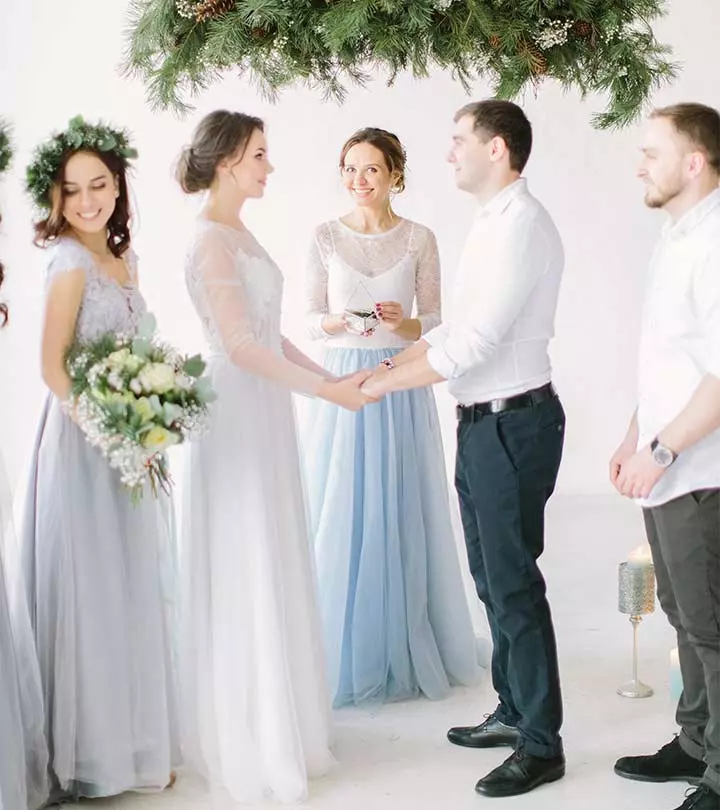


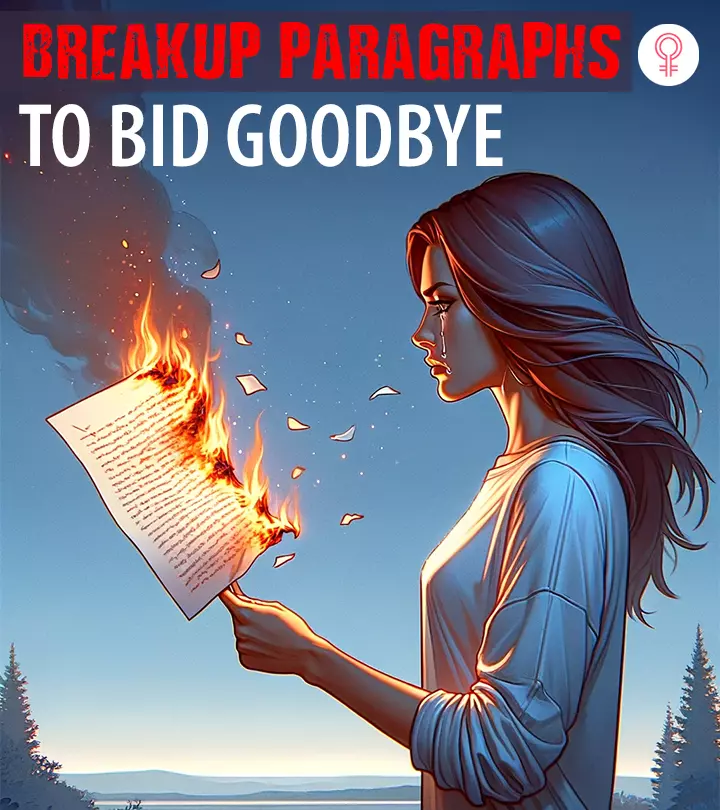





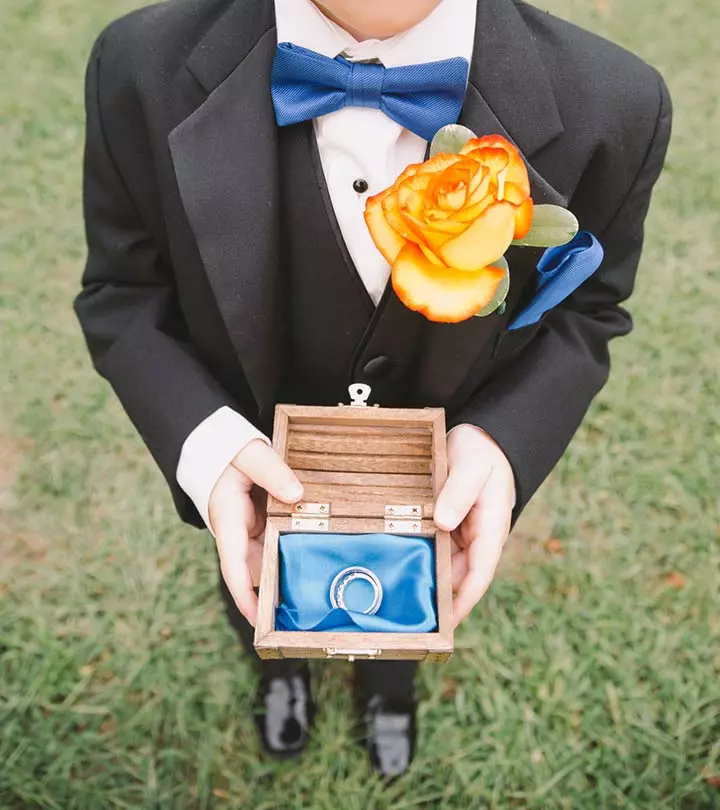







Community Experiences
Join the conversation and become a part of our empowering community! Share your stories, experiences, and insights to connect with other beauty, lifestyle, and health enthusiasts.